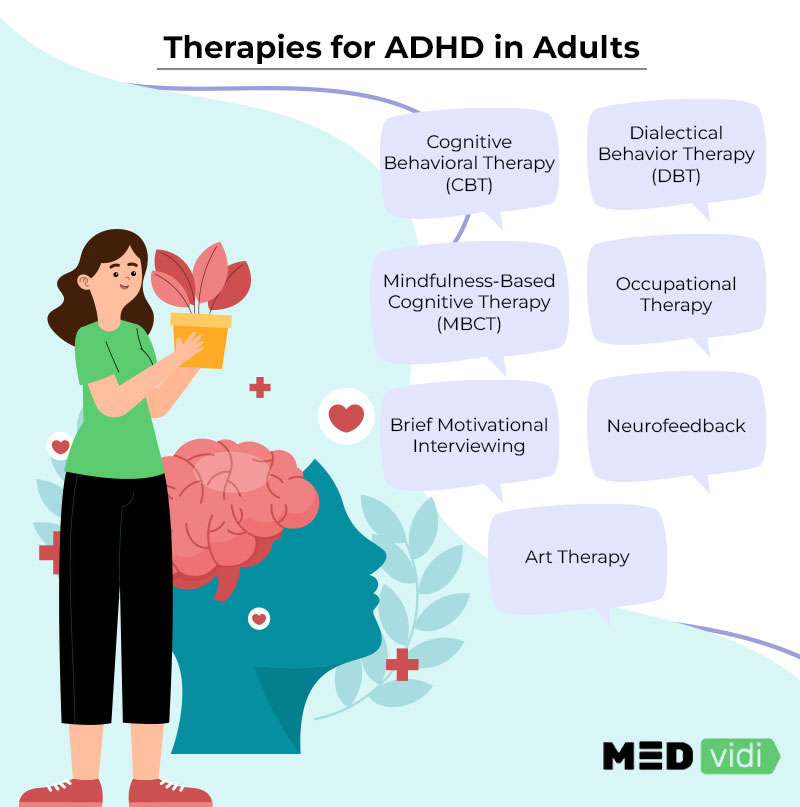Your Overview to Locating the Right ADHD Treatment for Lasting Outcomes
Browsing the complexities of ADHD therapy calls for a nuanced understanding of both the disorder and the myriad options available for efficient monitoring. It is essential to recognize that what works for one individual may not necessarily yield the same results for another.
Understanding ADHD and Its Impact

In grownups, ADHD can cause difficulties in office environments, affecting productivity, time management, and social partnerships. Usually, undiagnosed or poorly handled ADHD can contribute to co-occurring psychological wellness issues, such as anxiousness and anxiety, further making complex an individual's total well-being.
The societal perception of ADHD can differ, resulting in preconception and misconception, which may prevent individuals from looking for help. As understanding expands, it is vital to foster an atmosphere that advertises understanding and assistance for those affected by ADHD, emphasizing the need for accurate medical diagnosis and tailored strategies to mitigate its effect on day-to-day life.
Introduction of Therapy Choices
A thorough strategy to dealing with ADHD includes a range of choices customized to the individual's distinct requirements. These options can generally be classified into behavior interventions, psychoeducation, and way of living modifications, along with pharmacological therapies that may be checked out later on.
Behavioral treatments, such as cognitive-behavioral treatment (CBT), concentrate on changing particular habits and establishing coping approaches to take care of signs and symptoms effectively. Psychoeducation plays a critical duty in equipping both people and their family members by offering information concerning ADHD, its difficulties, and efficient methods for support.
Way of living adjustments can significantly influence ADHD administration. Regular physical task, a balanced diet regimen, and sufficient rest add to total well-being and sign control. Mindfulness practices and relaxation techniques can likewise improve emphasis and reduce impulsivity.
Assistance groups and household therapy can cultivate a sense of neighborhood and understanding, assisting people really feel less separated in their experiences. Each therapy choice should be taken into consideration together with the person's choices and circumstances, making sure an alternative technique that advertises long-lasting success. Eventually, the goal is to develop a personalized treatment plan that addresses the details challenges connected with ADHD while boosting total top quality of life.
Medication: Pros and Disadvantages
Drug plays a crucial function in the therapy of ADHD, with numerous options readily available that can substantially reduce signs and symptoms for numerous people. Energizers, such as methylphenidate and amphetamines, are generally prescribed and have revealed performance in enhancing emphasis, decreasing impulsivity, and boosting total habits. These drugs function by enhancing dopamine and norepinephrine levels in the mind, which are usually dysregulated in those with ADHD.
Some people might experience side effects, including sleeping disorders, decreased hunger, or enhanced anxiousness. Additionally, not all patients react to stimulant medications, leading some to explore non-stimulant alternatives, which might have a postponed onset of action or various side effects.
It is essential for people and their families to consider these benefits and drawbacks thoroughly. Stabilizing the benefits of sign administration against possible adverse effects is important for achieving optimum therapy results. Partnership with doctor can promote informed choices, making sure that medicine is part of an extensive ADHD management plan.
Behavioral Therapy Strategies

One frequently employed approach is Cognitive Behavior modification (CBT), which aids people identify and transform adverse Related Site idea patterns that add to ADHD-related obstacles. Therapist for ADHD. Via CBT, clients find out to establish reasonable goals, manage time efficiently, and develop business systems
Another reliable method is Parent Management Training (PMT), which informs moms and dads on how to strengthen positive actions and lower negative ones through constant self-control and interaction strategies. This technique fosters a supportive home atmosphere that motivates behavior enhancements.
Social skills training is also integral, aiding people with ADHD navigate social interactions more properly. Role-playing and modeling ideal habits can improve social proficiency and reduce anxiousness in social circumstances.
Lifestyle Adjustments for Better Administration
Just how can way of life changes substantially enhance the monitoring of ADHD symptoms? Carrying out tactical way of living modifications can cause substantial enhancements in emphasis, organization, and psychological regulation for individuals with ADHD.
Firstly, developing a structured everyday regimen helps in producing predictability, which can relieve feelings of overwhelm. Regular schedules for meals, study, and sleep can improve daily performance.
Integrating routine physical task is additionally critical, as exercise has been revealed to enhance dopamine degrees, improving attention and motivation (Therapist for ADHD). Going for at the very least 30 mins of moderate exercise most days can be helpful
Nourishment plays a crucial duty. A well balanced diet rich in omega-3 fatty acids, whole grains, and protein go to website can support cognitive function. Limiting processed sugars and caffeine may decrease signs, visit this site as these can bring about power collisions and irritability.
Conclusion
Finally, finding the best ADHD treatment requires a complex approach that considers specific demands and preferences. A combination of medication, behavior modification, and way of living adjustments can substantially boost signs and symptom monitoring and general wellness. Engaging in psychoeducation and establishing structured regimens additionally sustains effective treatment strategies. Cooperation with medical care specialists and open communication with support networks are vital components in navigating the intricacies of ADHD monitoring, eventually resulting in lasting outcomes and enhanced quality of life.